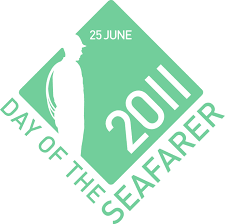By: Davide de Bernardin; freelance researcher and analyst on maritime economics & international security.
Year after year the money spent on ransoms for the return of the pirated ships rises. In 2005, the average ransom was about US$150,000, but in 2010, it jumped to US$5.4 million; that means a 3600 percent increase in only five years: the fastest growing industry in this economic crisis period.
For a country whose economic base has collapsed in twenty years of civil war, perspectives of an almost sure income, and the possibility to feed a family, are extremely attractive. This incredible sum of money has generated a new form of economy into the pirates' hubs: new professions are born in the area, such as interpreters, technicians, cooks and others useful to the business. There is evidence stating that ransoms are quickly divided between the members of the clan and investors, thanks to the traditional practice of nepotism which supports the idea that the whole group has to gain from the support it gives to the individual.
Nevertheless, even if a part of the ransom is to be shared with the local community, the greater part of it is sent abroad to be laundered and reinvested. The lack of border checks make it possible to take the money out of the country simply through the Gulf of Aden to Yemen, without many risks, but the preferred way is a lot simpler. As Somalia does not have a working bank system to be used, pirates bypass the usual checks by governmental agencies and foreign banks thanks to the Hawala traditional channels. Linking Somalia with the great number of emigrants worldwide – 14 percent of the Somali population lives abroad - the Hawala channels represent a traditional money transfer system in the greater Arab region and are based on the honour and trust rules typical of Islam. The useful particularity of the system is that it doesn't require an actual, and traceable, money flow between sender and recipient, thanks to a wide net of brokers around the world.
The war against terrorism funding turned on the light on this matter when the US included Al-Shabaab in the number of terrorist organisations. As do the pirates, the Islamic militant organisation uses Hawala as a way to get money from supporters and illicit activities abroad. The experience during both the Iraq and Afghanistan war has provided a good field study for the agencies involved in the difficult task of switching off the channels, as they have even used it in some situations.
In Somalia, these channels are used to provide weapons, ammo and fuel. There is also the need to pay back investors, informants and corrupted officials in the preys' home ports, and to do it in a very cautious manner, as these people are checked by the authorities.
Over the years, international efforts have failed in checking these transactions and, as a consequence, have failed in recovering the money, drying the flow of weapons and technological systems from outside Somalia. The easiest way to stop Hawala might be to persecute the ‘Hawalers’, the brokers, but emigrants have used these channels for remittances to their relatives for decades and it is not possible, nor fair, to slow down this flow, which represents almost the only legal income of foreign currency.
Actually, the international legal status of Hawala is not clear: in 2002, the U.A.E. government hosted the First International Conference on Hawala, with the help of the IMF, underlining the different approaches to the problem by each country. The U.K., for instance, legalised Hawala thanks to simple rules to be followed in order to make transactions traceable. On the other hand, in the U.A.E. brokers' registration is voluntary and there are no obligations to keep a register of transactions, making it the perfect, legal way, for dirty trades.
The United Arab Emirates' Counter-Piracy conference held in April, 2011, has recognised that "the international counter-piracy effort increasingly highlights the role of those funding piracy operations and others involved indirectly in the financing of piracy. The effective tracking and disrupting of illicit financial flows is an important tool to deter acts of piracy and to apprehend and prosecute those who finance piracy." (Article 5, Final Declaration, 19th April, 2011)
It is obvious that it is impossible for the international community to recover at least a part of the hundreds of millions of dollars “spent” in these years without a serious effort to harmonize the different legal systems. Thanks to both their geographically and culturally, privileged position, Arab countries could do more to help, in this way slowing down their internal terrorism funding. Nevertheless, in this historical moment, geopolitical clashes between local powers, Saudi Arabia and Iran, and the aftermath of the so-called “Arab Spring” seem to catalyse governments’ attention.
Contributor: Davide De Bernardin
Davide de Bernardin is a freelance researcher and analyst on maritime economics and international security. He has worked for the Italian Trade Commission in Israel and has studied International Science, Diplomatic Relations, Logistics and Transport in universities in Italy. He is a contributor to publications on international economic ties between Italy, Libya and Tunisia. The views stated are those of the contributor and do not necessarily reflect those of OCEANUSLive.org.
OCEANUSLive.org


Information, Security, Safety; Shared